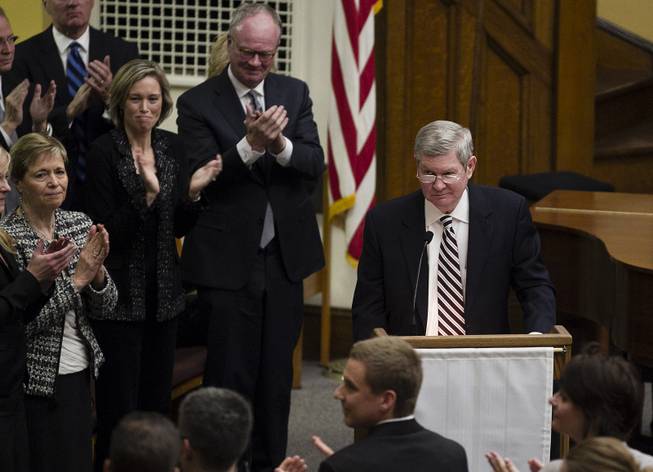
AP Photo
Sen. Tim Johnson, D-S.D., receives a standing ovation while speaking at a prayer service for former Democratic U.S. senator and three-time presidential candidate George McGovern at the First United Methodist Church in Sioux Falls, S.D., Thursday, Oct. 25, 2012. McGovern died Sunday in his native South Dakota at age 90. (AP Photo/Nati Harnik)
Sunday, March 31, 2013 | 2 a.m.
Sun coverage
South Dakota Sen. Tim Johnson’s announcement last week that he plans to retire at the end of 2014 opens up a seat that has belonged to Democrats for almost 17 years, and the repercussions of his move may affect the Democratic party far beyond the Mount Rushmore State's borders.
Johnson is the fifth Senate Democrat to announce in recent weeks that he will not seek re-election when his term comes up in 2014. Five is a potentially significant number for Democrats, who hold 55 seats in the 100-member Senate — a 10-seat lead now, but one that could be erased if five races don’t go the party’s way.
The other four Democratic senators who have announced retirement are Tom Harkin of Iowa, Jay Rockefeller of West Virginia, Frank Lautenberg of New Jersey and Carl Levin of Michigan. Although none represents a state as historically red as South Dakota, no departing senator hails from a state that is predicted to go blue.
That said, Sen. Harry Reid, Democratic Senate Campaign Committee Chairwoman Patty Murray and the Democratic Party have survived worse odds in 2012. Republicans were initially presumed to have a strong upper hand, as well as a chance to gain control of the Senate because of the slimmer Democratic majority — they controlled 53 seats in the 112th Congress — and far more Senate seats to defend than Republicans: 23 versus 10.
Senate Democrats emerged from the 2012 contest with a stronger majority. In 2014, 21 currently Democratic seats come up for election, compared with 14 Republican seats.
Here’s the lay of the political land in the five states with retiring Democratic senators:
-
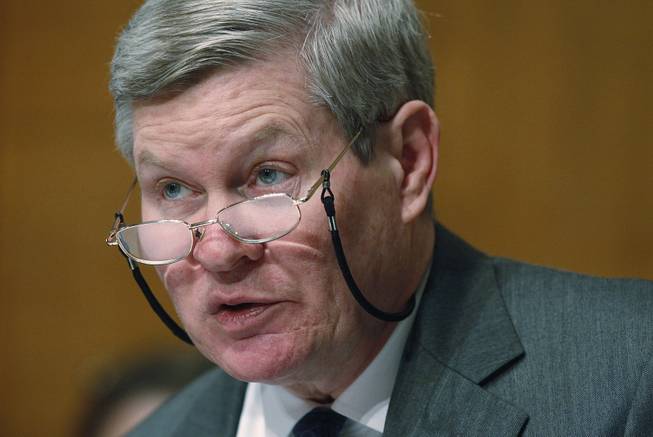
South Dakota
Republicans in Johnson's South Dakota have a supermajority in the state Legislature and control the governor’s office; the state has voted overwhelmingly for Republicans in recent elections, favoring Mitt Romney in 2012 over President Barack Obama by 18 percentage points. Democrats in South Dakota did not challenge Sen. John Thune’s 2010 bid for re-election.
-
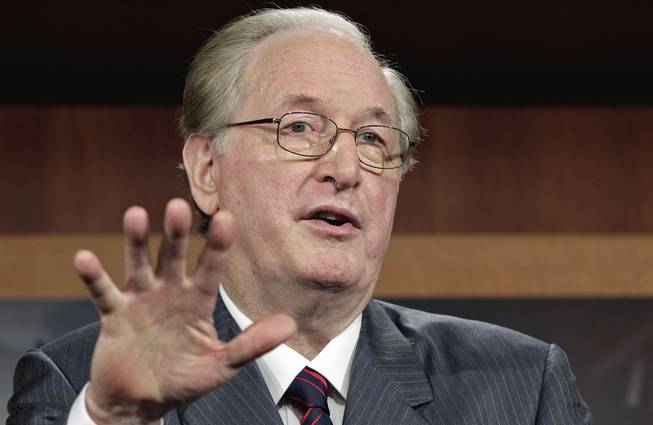
West Virginia
In West Virginia, voters favored Romney over Obama by nearly 27 percentage points. But Democrats control the state Legislature and governorship, and the state has a long history of electing Democrats — albeit relatively conservative ones — to the Senate.
-
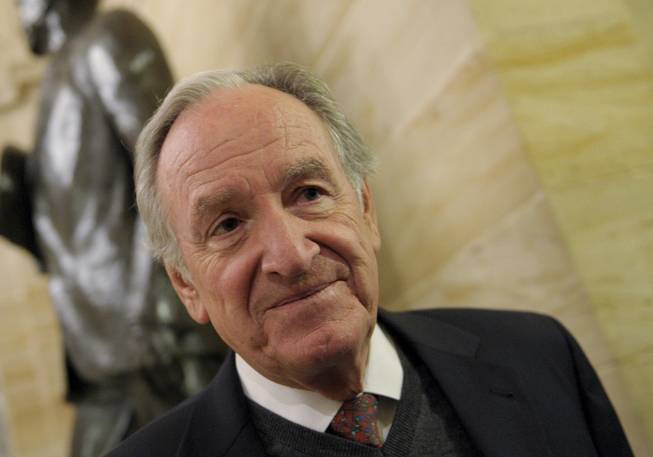
Iowa
Iowa began voting for Democrats in presidential elections when Obama became the name at the top of the ticket, but voters elected Republican Terry Branstad governor in 2010. Iowa’s state Legislature is split, as are its House and Senate delegations. Iowa has not elected a nonincumbent to the Senate in a generation, not since Harkin won his seat in 1984.
-
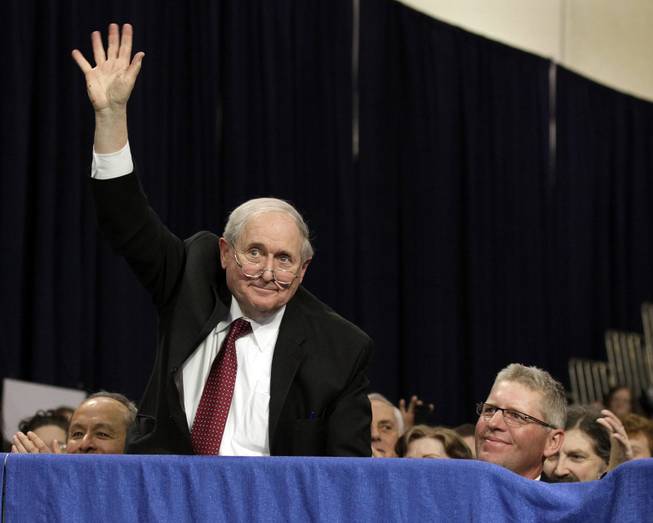
Michigan
Michigan has not voted for a Republican presidential nominee since President George H.W. Bush’s first election in the late 1980s. But at the state level, Republicans have fairly solid control of both chambers of the Legislature, as well as the governor’s office. The state’s congressional delegation is almost evenly split, with Republicans controlling nine seats (all in the House) and Democrats with the remaining seven. Levin has held his seat since 1979, but it’s only been about a decade since Michigan had a Republican senator — though Spencer Abraham was defeated by still-serving Democrat Debbie Stabenow in 2000.
-
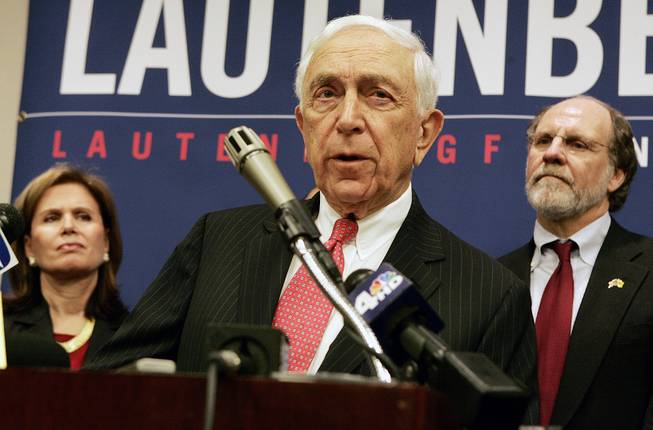
New Jersey
Lautenberg's New Jersey has been a sure thing for Democrats in presidential races since Bill Clinton’s first election, and its Legislature is securely blue. But the state has one of the Republican Party’s leading figures — Chris Christie — as governor. That said, New Jersey hasn’t had a Republican senator since Nicholas Brady was appointed for an eight-month interim term in 1982. New Jersey hasn’t had an elected Republican senator since Clifford Case left in the late 1970s.






Join the Discussion:
Check this out for a full explanation of our conversion to the LiveFyre commenting system and instructions on how to sign up for an account.
Full comments policy